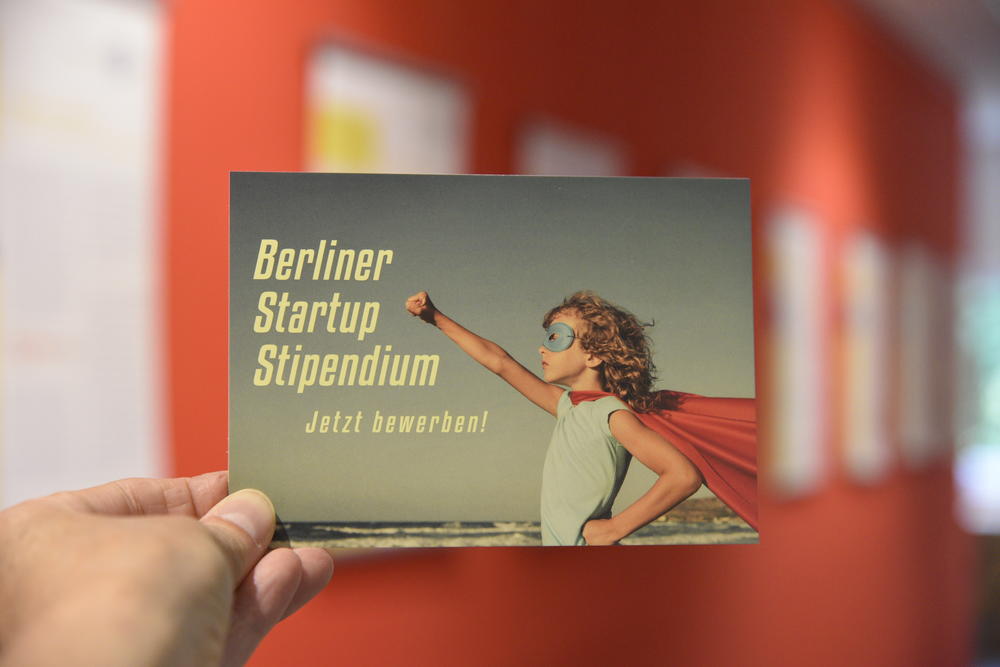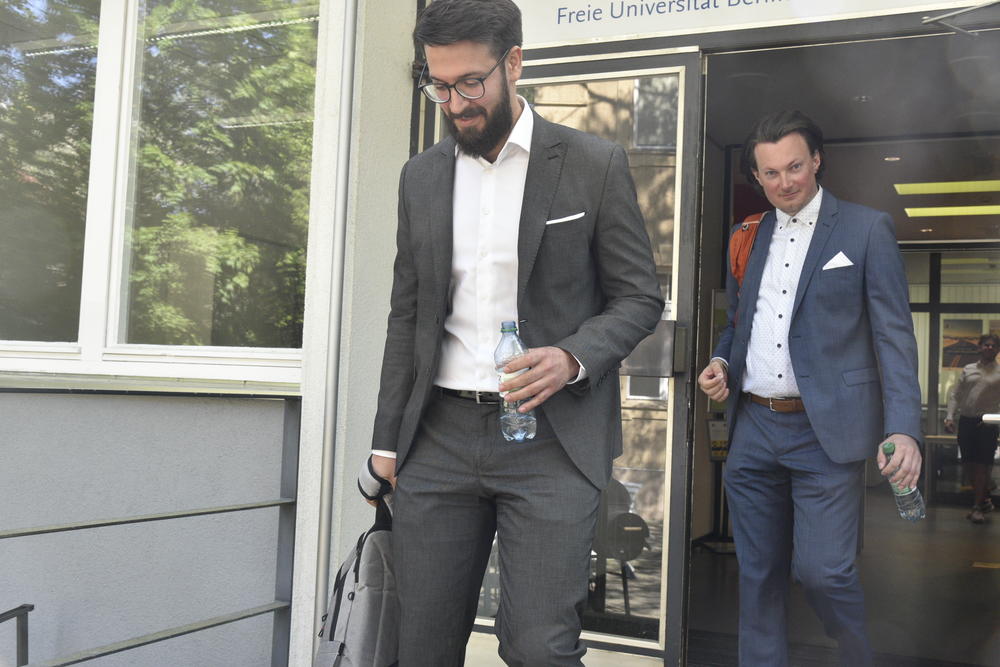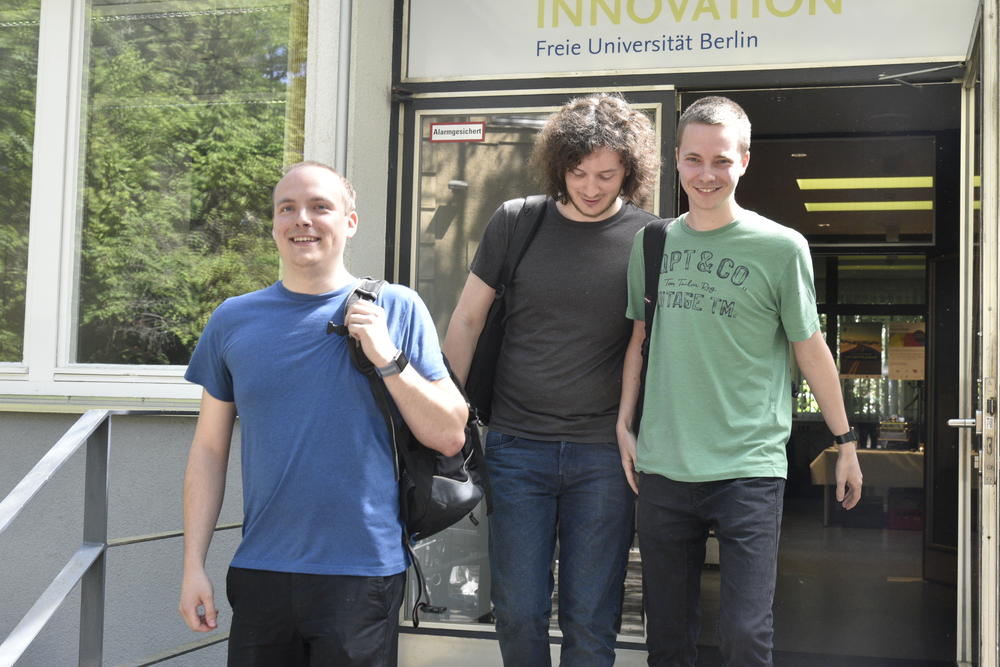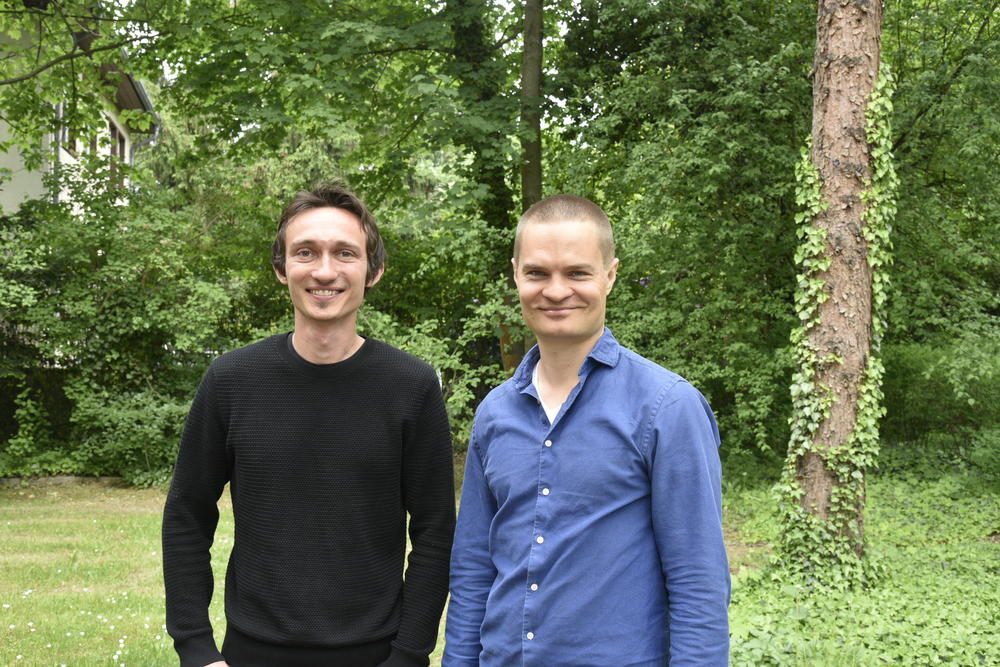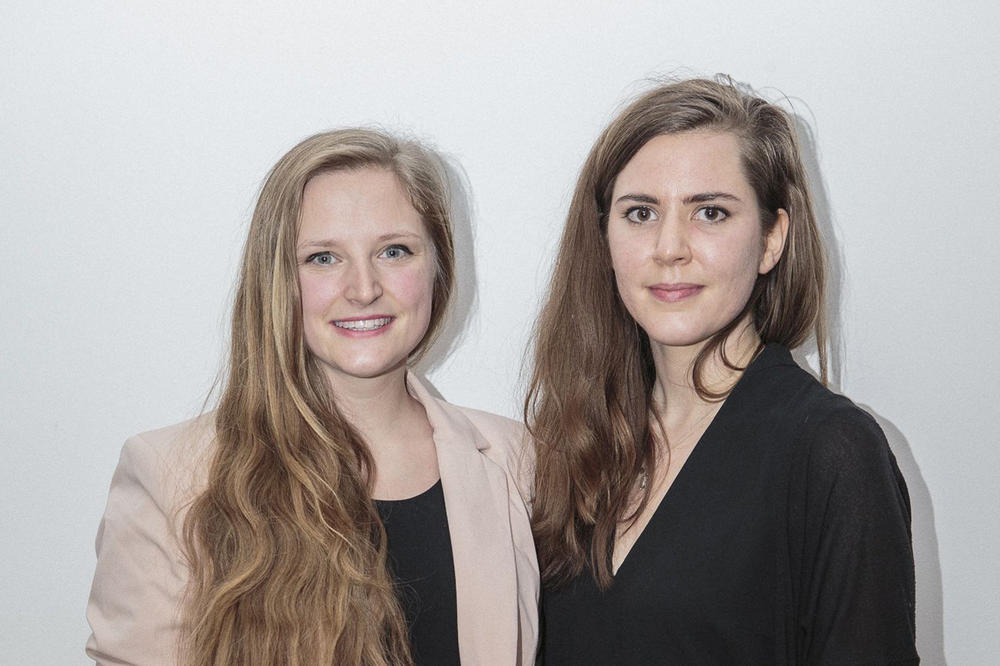Using Research Expertise to Find Solutions to Everyday Problems
Applicants from Freie Universität Berlin, Humboldt-Universität zu Berlin, Technische Universität Berlin, and Charité- Universitätsmedizin Berlin presented their founding projects to a jury of the Berlin Startup Scholarship.
Jun 12, 2018
With the Berlin Startup Scholarship, Freie Universität Berlin, Technische Universität Berlin, Charité - Universitätsmedizin Berlin, and Humboldt-Universität zu Berlin have been supporting startups since 2016.
Image Credit: Marion Kuka
The beehives and greenhouses at the Institute of Biology may appear peaceful, but things were getting fierce right next door: in the low-rise building of Profund Innovation, the service unit for knowledge and technology transfer in the Research Division of Freie Universität Berlin, in Berlin-Dahlem’s Haderslebener Strasse, startup teams seeking financing for their business ideas related to university research introduced themselves. Over a two-day period, 21 teams competed i.e. with a pitch in front of the jurors. The most convincing will be funded with the Berlin Startup scholarship. In other words, two to four team members will receive 2,000 euros per month for a period of between six and twelve months. This will cover the cost of living, allowing the team to develop a prototype and drive the start-up company forward.
“One great advantage of the Berlin Startup Scholarship: We can make quick decisions.”
With the Berlin Startup Scholarship, Freie Universität Berlin, Technische Universität Berlin, Charité - Universitätsmedizin Berlin, and Humboldt-Universität zu Berlin have been jointly supporting founders since 2016 who want to implement innovative, technology-based business ideas. Supported by the European Social Fund, the Berlin Senate Department for Economy, Energy and Public Enterprises has approved 4.3 million euros for the program. The application deadline for the first round was April 30. The best applicants from the participating universities were admitted to the presentation. The jury was made up of some successful founders from the environment of the participating universities as well as network partners of the start-up funding agencies with experience in evaluating start-up projects. After all the teams had been screened, a decision on acceptance or rejection was made on the same day.
Andreas Schindler and Stefan Junk from the “Deep Neuron Lab” team at Technische Universität Berlin.
Image Credit: Marion Kucka
“One great advantage of the Berlin Startup Scholarship,” says Aneta Bärwolf, who heads the program at Freie Universität Berlin, “is that we can make decisions quickly. For those who are accepted, the funding will begin as early as June 1. Otherwise an answer never comes so fast, neither from other funding programs nor from private investors.”
Stefan Junk and Andreas Schindler from the Deep Neuron Lab team at Technische Universität Berlin want to get going at full speed. Andreas Schindler, who has been working in the insurance industry for nine years, developed an idea on how to replace tiresome routine work in arranging individual insurance policies with artificial intelligence. In his research at the Institute of Aerospace at Technische Universität, Stefan Junk has been dealing with software problems that can be transferred to the insurance industry. The startups will soon have an appointment with a large insurance company interested in a pilot project. Their concept and initial successes in the implementation convinced the jury and secured the team a place on the list of pledges.
Andreas Ganske, Simon Kempendorf, and Fabio Tacke from Humboldt-Universität zu Berlin are competing under the team name “Let’s meet.”
Image Credit: Marion Kucka
The computer scientists Andreas Ganske, Simon Kempendorf, and Fabio Tacke from Humboldt-Universität zu Berlin also want to solve an everyday problem: it could be so convenient to share your location via your mobile phone. “Stating your location for deliveries, emergencies, private appointments, or car sharing is a real added value,” says Andreas Ganske. “But many people shy away from leaving their location data to the big Internet companies.” Using cryptography software, the “Let’s meet” team aims at creating an infrastructure for securely authorizing location data in individual cases for very specific recipients and for a limited period only. The team is convinced that companies and users are willing to pay for a package that combines convenience, privacy, and efficiency. The jury gave the go-ahead for a scholarship.
Tassilo Weber and Roope Kärki of Freie Universität Berlin began their pitch by asking if anyone in attendance leads a stressful life. Many hands went up, including those of the two founders themselves. It is well known that stress is unhealthy, but how many years of one’s life does it actually cost? App Yolife asks its users for risky habits and, based on scientific findings, it calculates healthy life expectancy. It additionally provides some suggestions and tips for changing unhealthy behavior and thus improving one’s own life expectancy in the long term. After the presentation, the jury had diverging opinions: would you use such an app yourself? One plus for the team: the members had presented a highly professional plan and were also in possession of the appropriate qualifications: Tassilo Weber, in addition to his master’s degree in philosophy, has completed training in design thinking at the Hasso Plattner Institute in Potsdam and has already worked as a startup’s consultant as well as a programmer. Roope Kärki and the third team member, Or Sarfati, also have a lot of experience in developing and designing apps. The jury agreed on a positive vote.
Laura Bücheler and Isabella Hillmer came up with their founding idea called “Ghost – feel it.
Image Credit: Max Power
Laura Bücheler and Isabella Hillmer competed for Charité - Universitätsmedizin Berlin. They are working on an orthosis in the form of a glove to be able to give people with nerve damage or an amputated arm back the feeling for temperature and the sense of touch.
Isabella Hillmer studied psychology, neuroscience, and industrial design before working in research and a startup. Laura Bücheler is an engineer for medical technology and has gained experience in a sensor company. For its founding idea called “Ghost – feel it,” the team received the “Smart Wearables x Smart Textiles” award from the Berlin Senate Department for Economics, Energy and Public Enterprises, endowed with 10,000 euros in 2017. There was also some impetus from the jury: from June 1 on, the founders can now use the Berlin Startup Scholarship to further promote their product.
“This scholarship gives us an opportunity to take our first steps at no great risk.”
In the end, a total of 16 start-ups from all participating institutions were awarded a scholarship. “The teams look exactly for where there are problems. And they use expertise from research to develop solutions,” said Thomas Wagner from Humboldt-Universität zu Berlin, summing up the pitch marathon. It is, however, difficult to say if we will know all of the projects in a few years’ time. “We can’t look into the future,” says jury member Marcus Luther from Charité - Universitätsmedizin Berlin and Berlin Health Innovations, the joint technology transfer of the Berlin Institute of Health and Charité. “But that’s exactly why we use the scholarship to provide an opportunity for taking the first steps without any high risk.” In doing so, each team is supported by an academic mentor, has access to start-up rooms and laboratories on campus, and is advised by the university’s start-up grants. There are further advantages resulting from the universities’ joint sponsorship. “Although each team is assigned to one university, they can also use the services offered at the other universities in supporting start-ups,” explains Diana Bauer from Technische Universität Berlin. In addition, joint events encourage the founders to exchange experience with each other.
Applications for the next round of the Berlin Startup Scholarship are still possible until July 30, 2018. After this, other teams will be invited to present their startup projects to the jury.

